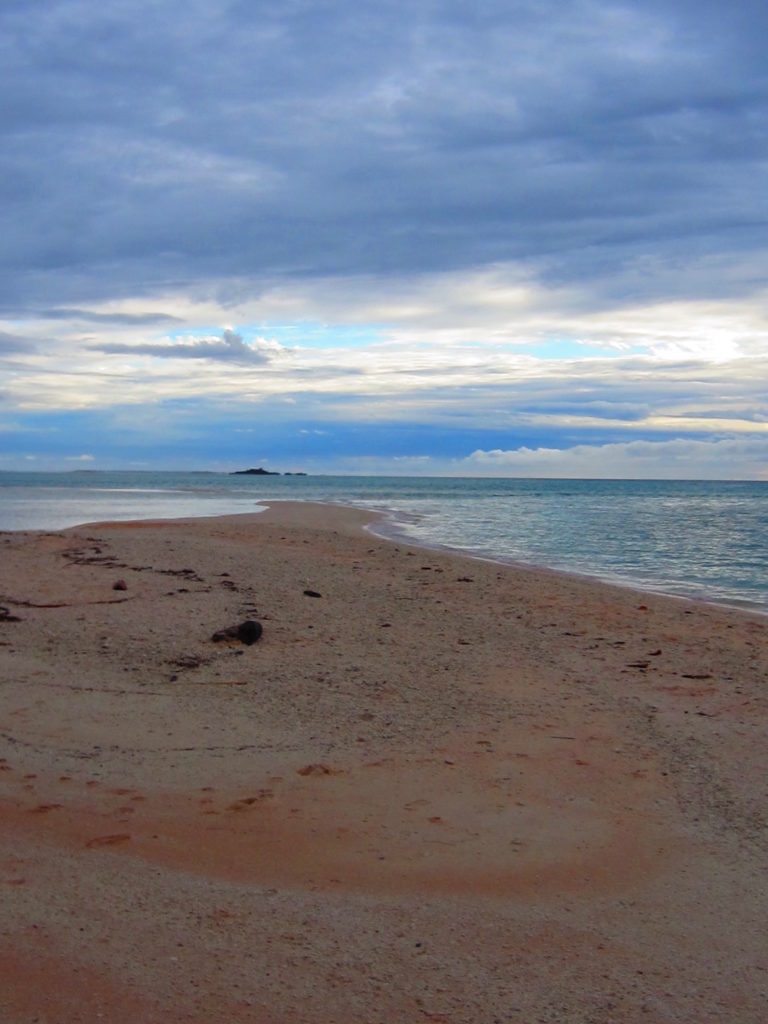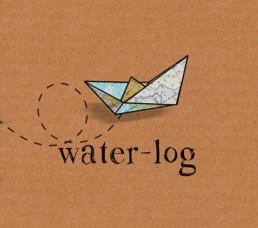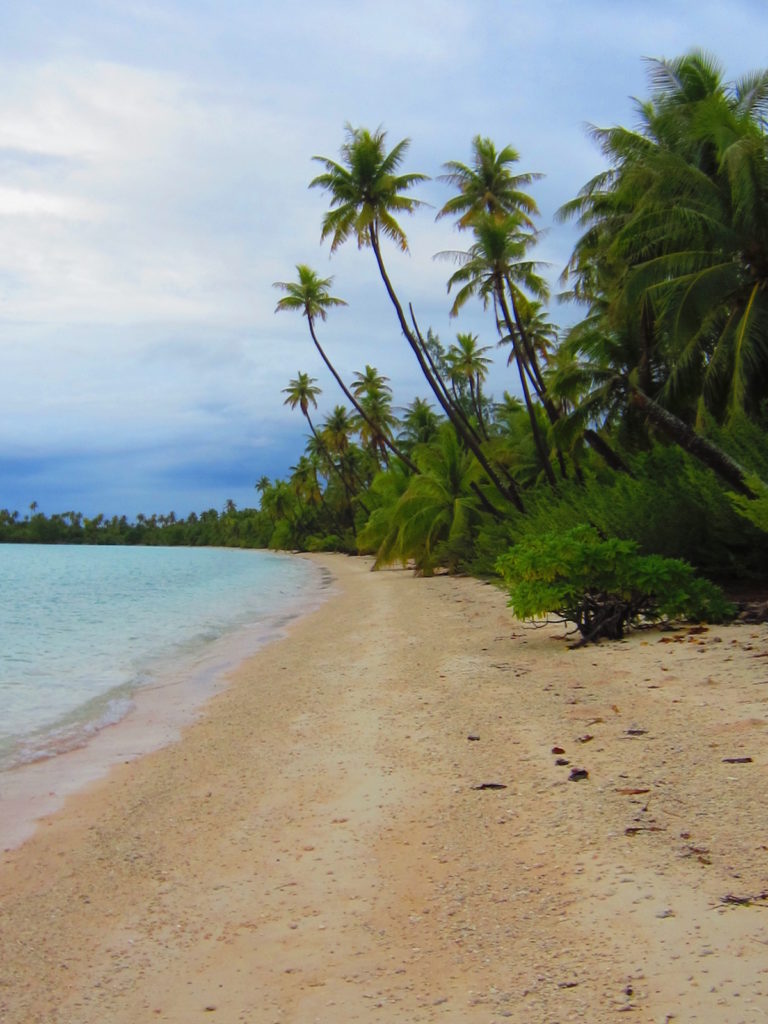
Summer has begun. For us Brits the snatched breaks of bank holidays and family vacations send us flocking to the beach. Whether it’s the English seaside – complete with donkey rides, rockpools, and someone selling jellied eels – or jetting off to the stronger sun of the Mediterranean, Caribbean or somewhere else exotic, fringed with palm trees and powdery white sand one thing is true: the very idea of a beach holds an incredible allure for so many of us.
However, an inevitable consequence of the sailing life is that your judgement of beaches will forever be utterly distorted.
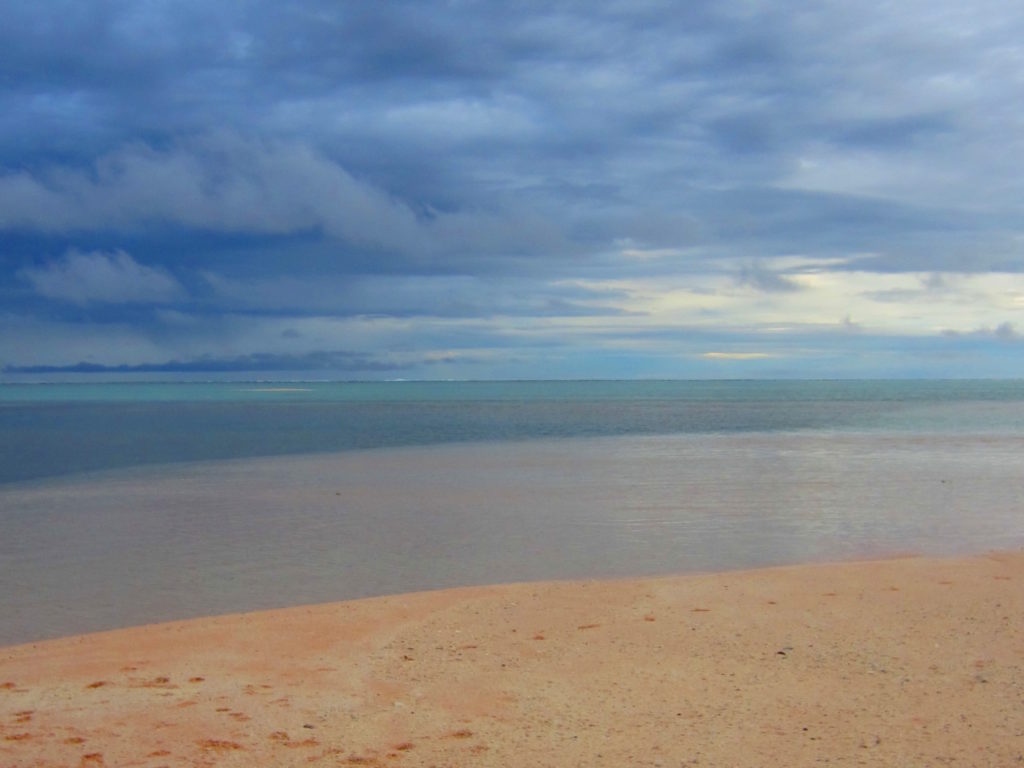
We’ve experienced the coastlines of 36 various countries, across different oceans and continents and visited hundreds of shores. There have been pebbly beaches and rocky ones; white sand, black sand, pink sand and yellow sand; some have been littered with beautifully patterned shells, intricate corals, and decorated with starfish; others have simply been littered with rubbish, plastic waste, old flip-flops and disposable nappies. I’ve seen beaches where wild horses run along, turtles paddle up, crocodiles lurk, cows, goats, chickens and pigs are grazing, orca whales play and komodo dragons stalk. We’ve had everything from wild and chaotic surf landings where all of us get drenched in the dinghy to gorgeously calm, clear turquoise waters barely even lapping at the edge of the sand. There have been shorelines with huge tidal ranges, where miles of mudflats dry out or submerge, totally changing the landscape.
There’s a lovely, warm, smugness that you experience when you coax your boat closer and closer towards the beach before getting your anchor down, then toddle ashore to the waterfront pub and nod in reply to the looks of acknowledgement, with an ice cold beer in hand, that “yes, that is our yacht”. We had a few of those experiences in the British Virgin islands, a place strewn with delicious glittering little beaches coupled with the obligatory tempting bar.
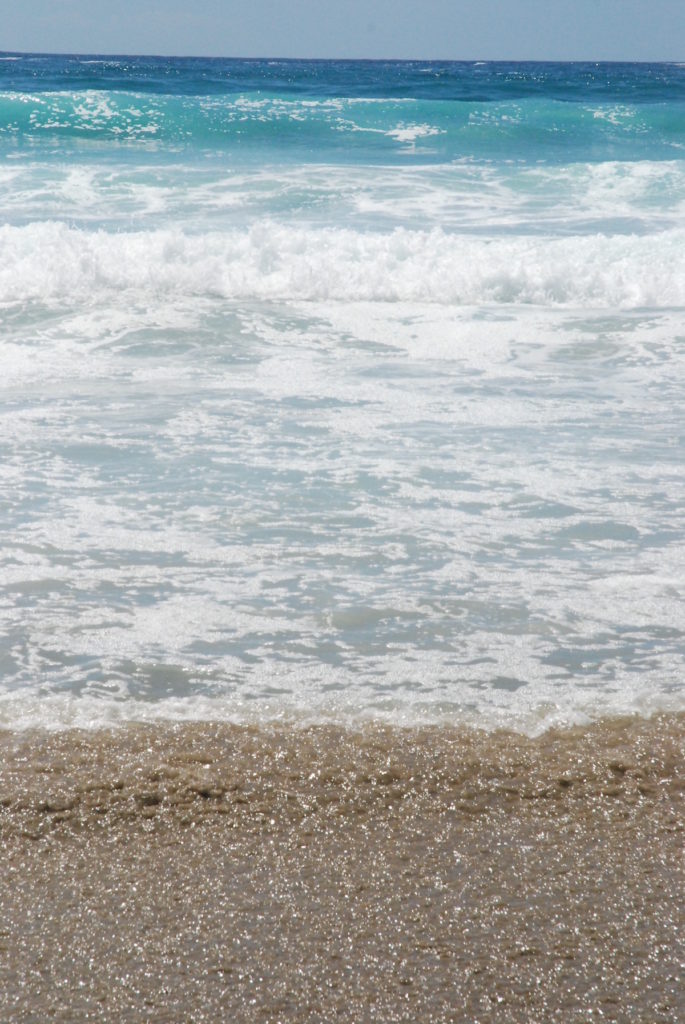
For our children, more often than not, a trip to the beach is a chance for them to resume their ongoing and seemingly tireless work of hermit crab husbandry. These ever sought for and adored creatures have had countless sandcastles, seaweed beds, shell hotels, pebble farms and twig pens designed and erected in their unwitting honour. Such efforts and care apparently go unappreciated by the objects of their affections and the frustrated little crabs spend a considerably large amount of time attempting somewhat futile escape.
We’ve arrived on beaches where we get mobbed by local village children, pelting their way towards us on the shore, butt-naked with brown skin and gleaming white grins. We’ve been greeted by elders at the water’s edge, welcoming us with their songs and music, with coconuts to drink, flower and shell necklaces to wear and a new friendship born at the beach.
But what spoils you for life, what skews your sense of normality and ruins you for any future seaside visits as a landlubber is that cruisers get beaches all to themselves. Empty. No ice-cream touts or sun-lounger scramble. We can seek out the hidden cove, be the only boat to anchor there and arrive ashore to find not a single footprint in the sand. We can avoid the heat of the day and only trip our way over to the shingle in time for the sunset, or a beach fire. I can paddleboard lazily over to do yoga on the sand before breakfast just for the hell of it. There’s none of that same organising bags full of kit and gear needed for a day’s beach outing in the UK as it’s normally just the work of a moment to nip back to the boat and fetch something.
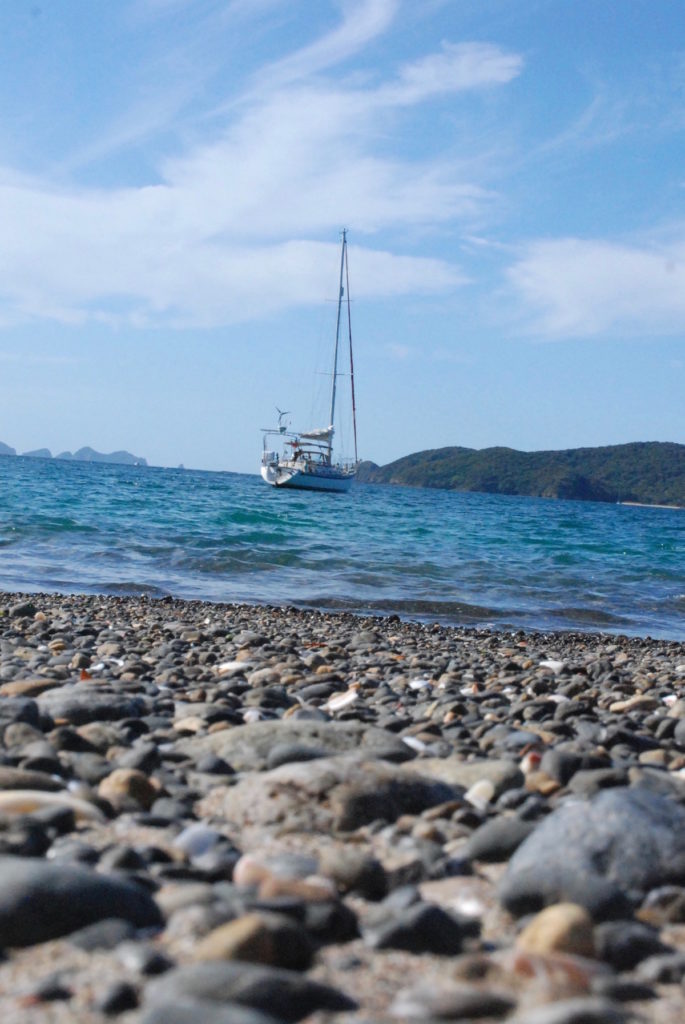
The key difference of this supremely lucky and special sailing existence is that, for the brief time that we’re there, this is our beach. It’s our backyard, our playpen, our living-room and our picnic spot. Like our British and European explorer ancestors before us we feel an overblown and unjustified sense of immediate territorial ownership – “that’s our boat and this is our beach” – only just falling short of planting flags in the sand.
Thankfully, such delusions can be short-lived. All it takes is the faint noise of an engine humming nearby, signifying that dreaded reality-check of the second sailboat coming in to anchor to shatter the idyll of it being our own private beach. It was never really ours, just a beautiful, borrowed thing for a time. Until we find the next one…
